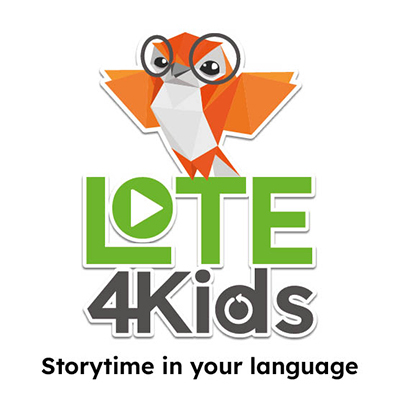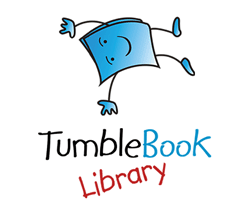…it’s hard on everyone. Cancer can be unnerving, unexpected and unwanted. In a way, it’s like a twisted magician. It takes a world and miraculously turns it upside down. It makes what-ifs appear as if out of thin air. As if through an enchantment, where there was more, there’s suddenly less. Less hair. Less certainty. Less time. It’s a show that no one wants to attend. Sadly, we don’t get to choose whether we receive a ticket to the exhibit or not. If we do, it can be beyond overwhelming, especially if there are young children in your care. How can you help them understand something that you may still be struggling with yourself? Luckily, you are not alone. Whether your child is struggling to understand what’s going on or trying to manage the myriad of emotions that they are surely having, we have something for you. Of course, you can always come to the library to ask us for help. The library is a safe place to ask whatever difficult questions you may have, and we will point you towards whatever resources we can. If you need time to process at your own pace, I’ve created an entire book list on this topic that you can access at any time. While I love all of the books on there, there are a few that truly have my heart. Here’s a rundown of my top 5:
“Cancer Hates Kisses” by Jessica Reid Sliwerski
Two kids and their dad support their “cancer-fighting superhero” of a mom. While some days may be hard, as the title says, “Cancer hates kisses.” Not only that, but cancer hates dance parties, hugs and compliments. Though it acknowledges the hardships that come with cancer, such as mama being tired and occasionally crying, it focuses mainly on what the family can do to help. That’s part of what I love so much about this book. During a time that is inherently sad, this book is like a light in the darkness. It is full of hope, a rare commodity in tough times. Moreover, it explains complex concepts in ways that are developmentally appropriate for small children. For example, it states that chemotherapy “…poisons the sneaky, hidden cancer.” Radiation, on the other hand, “…is a powerful light” that “…destroys the teeniest, tiniest cancers.” This book (along with “How Do You Care For a Very Sick Bear?”) is perhaps the best general recommendation on the list.
“The Rabbit Listened” by Cori Doerrfeld
When Taylor’s block tower falls over, all different kinds of animals are ready to tell them how to process their emotions. The chicken recommends they talk about it. The bear wants them to scream. The snake insists sabotaging someone else is the answer. Animal after animal comes by, but none of them help. That is until the rabbit. The rabbit simply sits with Taylor in their grief until they are ready to talk. After they go through all of the things Taylor considered doing (including talking, screaming, and lashing out), they feel much better and are ready to tackle the project again. This is one of my favorite children’s books of all time. I think that it’s useful for everything from traumatic situations to everyday life. There have been multiple times when this book has reminded me of the best way to help the children in my care when I am overwhelmed and unsure. If a child feels like suddenly “everything came crashing down,” perhaps they simply need someone to be their rock. You cannot change the fact that someone they love has cancer. You may not be able to make it all better again. But you can always listen.
“The Invisible String” by Patrice Karst
Twins Jeremy and Liza run to their mom for comfort after being woken up by a thunderstorm. She assures them that they will always be connected by a magical string of love. No matter how far away they are or what happens to them, nothing, not even death, can take that away. In my experience, something about the way Karst explains this notion is very comforting to small children (and adults, honestly). Just like “The Rabbit Listened,” while this book is a valuable reminder even during good times, it truly shines during difficult moments. Someone close having cancer can be strangely isolating. Suddenly, everything is (understandably) focused on that person. Even if there is an outpouring of love for everyone when the diagnosis first arrives, life continues on for the rest of the world. It may feel like you’re being thrown about by the current while everyone around you is swimming just fine. That’s why this book is so wonderful. It reminds us that fundamentally, we are never alone. Everyone, everywhere is connected to each other. Even if everything feels dark, we always have lifelines of love. We simply have to know how to look.
“Why Do We Cry?” by Fran Pintadera
One quiet day, Mario asks his mom why people cry. She gives him a series of incredibly poetic answers about the nature of being human and how crying can benefit us. There’s no one reason to cry. Some people may cry because they’re sad, some because they’re angry, some because they “…try to keep everything under lock and key, but their tears find a way to escape.” Regardless of the reason, however, Mario’s mother tells him that crying is not a bad thing. It is, as my friend likes to say, the way our souls sigh. I would argue that this is one of the most beautiful books on the list. Both the words and the pictures are stunning. Something about the way Pintadera describes emotions touches my heart. As is true of many of my favorites on this list, this is a great book for both good times and bad. Sometimes we all need to simply let it out, though that is especially true when handling the effects of a traumatic event. After a good cry, you may just find that life seems a little less bleak.
“You Weren’t With Me” by Chandra Ghosh Ippen
I had to hold back tears the first time I read this book. When I was younger and my loved one was in the hospital, I had incredibly mixed emotions. I missed them with my whole heart and worried desperately every day they were gone. But then when they came back, I discovered that a part of me was very mad at them for being sick and going away in the first part. I wanted to be with them, and yet I also didn’t want anything to do with them. They weren’t gone for very long, but it felt like ages. It was beyond confusing for my developing mind. I thought that I was a monster for being mad at all. I desperately could have used this book. In it, small rabbit and large rabbit are finally back together again after being separated. But little rabbit has some reservations that they don’t really understand. As they say, “I felt so alone, confused, scared, hurt, sad, angry. I didn’t know where you were.” Big rabbit assures them that it’s okay to feel those feelings. As they say, “I wasn’t with you then… but I’m here now.” I have never found another book that so wonderfully acknowledges the sheer range of emotions that can come from two people being separated. Most books simply handle the separation while it’s ongoing, and not the adjustment that comes after reunification. Not only that, but I love how this book covers feeling emotions that don’t seem to match. Little rabbit loves big rabbit, and yet they also feel horribly hurt. This situation is more common than one might think. It’s not unheard of for a child to become very angry at the person who is sick even while simultaneously knowing that it isn’t their fault at all. If a child is separated from their loved one for any period of time, or if they have conflicting feelings regarding the situation as a whole, this book is a great place to start.
If you get anything from this blog, please let it be that you do not have to do this alone. Whether it’s cancer or any other traumatic event, there are resources to help you navigate this difficult time. Many other people have been through the same thing as you and many hands are ready to help hold you up. If you need assistance, come to us and we can help. It may not be okay right now, but it will be in the end. You’ve got this.



